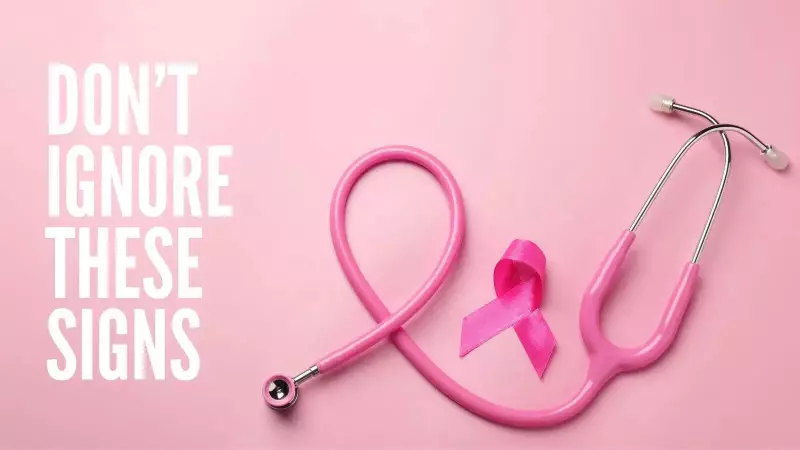
When we think of breast cancer, the first thing that comes to mind is finding a lump. But what if the most dangerous warnings aren't lumps at all? Medical experts are sounding the alarm about subtle, often-overlooked symptoms that could indicate early-stage breast cancer.
The Silent Signals Your Body Sends
Many women are walking around with early indicators of breast cancer without realizing it. These aren't the dramatic signs we see in movies, but quiet changes that are easy to dismiss as something less serious.
1. Skin Changes That Speak Volumes
Your breast skin can reveal what's happening beneath the surface. Watch for:
- Persistent itching that doesn't respond to creams or medications
- Redness or rash that lingers for weeks
- Texture changes resembling orange peel (peau d'orange)
- Unusual warmth in one area of the breast
2. Nipple Changes You Shouldn't Ignore
Your nipples can provide crucial early warnings. Be alert for:
- Sudden inversion or retraction of the nipple
- Unusual discharge, especially if it's bloody or clear
- Scaling, crusting, or peeling around the nipple area
- Persistent pain or tenderness
3. Shape and Size Anomalies
Many women notice changes in breast appearance before feeling any lump:
- Visible swelling in one breast without explanation
- Change in contour or shape that's new
- Unexplained shrinkage of one breast
- Asymmetry that develops suddenly
Why These Symptoms Get Missed
Most women dismiss these signs because they don't match the 'lump narrative' we've been taught. Persistent itching gets attributed to allergies. Skin changes get treated with topical creams. Nipple discharge gets ignored as hormonal fluctuations.
The reality: Inflammatory breast cancer often presents without a distinct lump. Paget's disease of the breast typically starts with nipple changes. And many early-stage cancers cause subtle architectural changes rather than obvious masses.
What Every Indian Woman Should Do
- Perform monthly self-exams - but don't just feel for lumps. Look for visual changes too
- Track persistent symptoms - if any change lasts more than two weeks, consult a doctor
- Trust your instincts - you know your body better than anyone
- Don't wait for pain - most early breast cancer doesn't hurt
- Get professional screening - mammograms can detect what hands cannot feel
The Bottom Line
Early detection remains our most powerful weapon against breast cancer. By learning to recognize these silent symptoms, Indian women can catch potential problems earlier, when treatment is most effective. Remember: when it comes to breast health, being observant might just save your life.
If you notice any persistent changes in your breasts, don't hesitate to consult a healthcare professional. Early intervention can make all the difference in your treatment journey.






